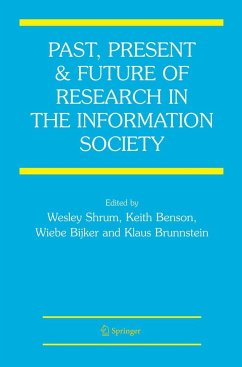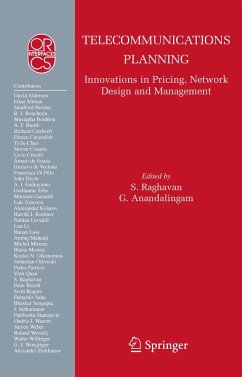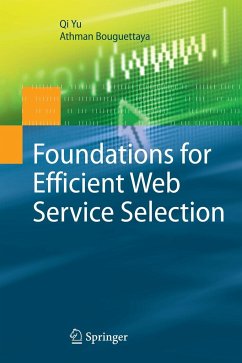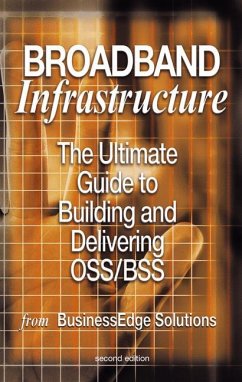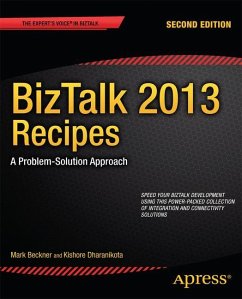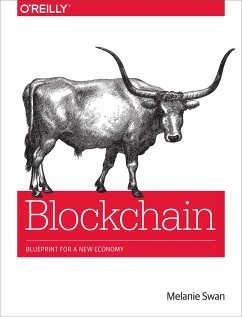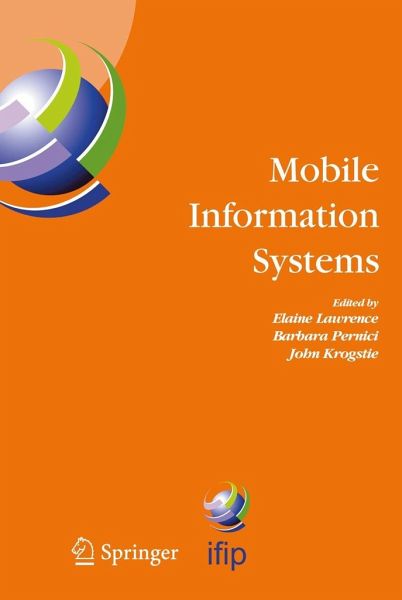
Mobile Information Systems
Ifip Tc 8 Working Conference on Mobile Information Systems (Mobis) 15-17 September 2004, Oslo, Norway
Herausgegeben: Lawrence, Elaine; Pernici, Barbara; Krogstie, John

PAYBACK Punkte
42 °P sammeln!
This book contains the proceedings of the IFIP TC8 Working Conference on Mobile Information Systems, which was held in September 2004 in Oslo, Norway and sponsored by the International Federation for Information Processing (IFIP).
Mobile Information Systems aims to:
- Clarify differences and similarities between the development of mobile vs. more traditional information system.
- Investigate the organizational impact of mobile information systems.
- Investigate mCommerce relative to eCommerce.
- Investigate mobile commerce applications combined with the advantages of mobile communications technologies, the drivers of which have been identified as ubiquity, reachability, security, convenience, localization, instant connectivity and personalization.
- Evaluate existing and newly developed approaches for analysis, design, implementation, and evolution of mobile information systems.
- Investigate technical issues and the constraints they pose on mobile information systems functionalities and design.
Mobile Information Systems aims to:
- Clarify differences and similarities between the development of mobile vs. more traditional information system.
- Investigate the organizational impact of mobile information systems.
- Investigate mCommerce relative to eCommerce.
- Investigate mobile commerce applications combined with the advantages of mobile communications technologies, the drivers of which have been identified as ubiquity, reachability, security, convenience, localization, instant connectivity and personalization.
- Evaluate existing and newly developed approaches for analysis, design, implementation, and evolution of mobile information systems.
- Investigate technical issues and the constraints they pose on mobile information systems functionalities and design.
Mobility is perhaps the most important market and technological trend within information and communication technology. With the advent of new mobile infrastructures providing higher bandwidth and constant connection to the network from virtually everywhere, the way people use information resources is predicted to be radically transformed. Over the last years, a new breed of information systems, referred to as mCommerce systems or mobile information systems, has appeared to address this emerging situation. In 2000, the IFIP 8.1 WG decided to look into establishing a task group to look closer at this area, and the idea was adopted and extended by IFIP TC8 the following year. After the arrangement of several workshop, this task group has been the driving force behind the arrangement of MOBIS (IFIP TC 8 Working Conference on Mobile Information systems) held in Oslo, Norway, 15-17 September 2004. The objective of the working conference was to provide a forum for researchers and practitioners interested in planning, analysis, design, construction, modification, implementation, utilization, evaluation, and management of mobile information systems to meet, and exchange research ideas and results. Specifically, we tried to use the working conference to - Clarify differences and similarities between the development of mobile vs. more traditional information systems - Investigate organizational impact of mobile information systems - Investigate mobile commerce applications combined with the advantages of mobile communications technologies X Mobile Information Systems - Evaluate existing and newly developed approaches for analysis, design, implementation, and evolution of mobile information systems.





